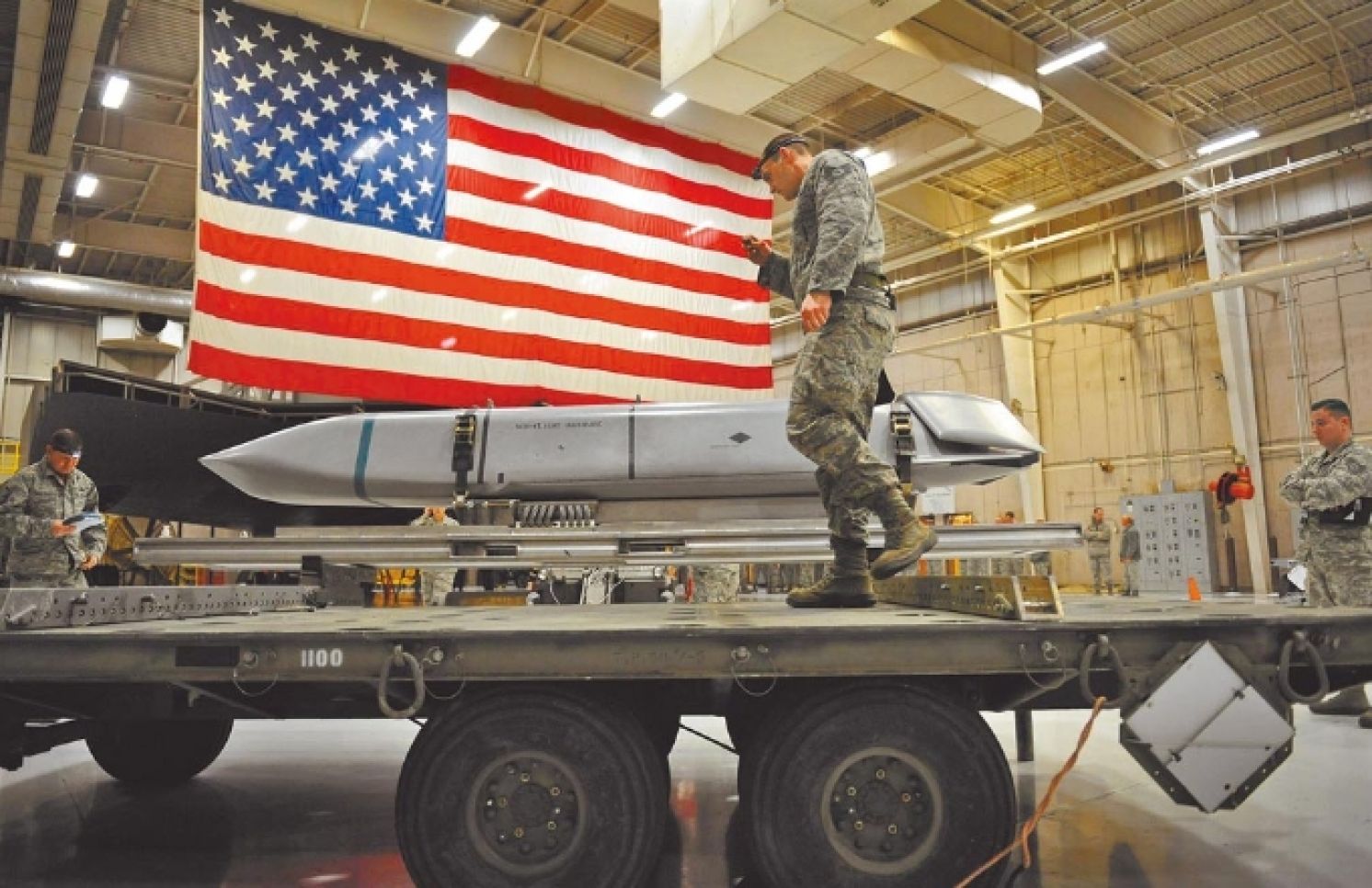
Taiwan Should Learn to Say "No, Thanks" to U.S.
By Wang Chien-chuang
United Daily News, January 8, 2023
Taiwan is destined to be pro-American because of its history and political reality. However, in demonstrating its pro-American stance, is it really necessary for Taiwan to ask for American aid to procure arms from the United States? Or to let American officials work in Taiwan’s government?
Those who care about national defense have regularly seen the following messages in the past two years: “The U.S. hopes to turn Taiwan into a porcupine by setting up a ‘Regional Contingency Stockpile’ in Taiwan;” “The U.S. military delegation has visited Taiwan secretly to evaluate its armed forces capabilities;” “The United States and Taiwan have established joint special operations forces and U.S. Navy SEALs have come to Taiwan for joint exercises;” “Taiwan has extended compulsory military service to one year and it is welcomed by the White House and the American Institute in Taiwan (AIT);” and “U.S. urges Taiwan to develop civil defense and purchase large quantity of small weapons for asymmetrical warfare.” Although Taiwan already has defense self-reliance plans such as a “10-year Military Building Concept” and “five-year Military Forces Reconstruction,” the reality is that the United States has long-arm interference in various aspects of Taiwan’s defense, and Taiwan will soon become a military vassal of the United States.
The U.S. National Defense Authorization Act for fiscal year 2023 passed last year authorizes, for the first time since 1979, to provide Taiwan with up to $2 billion under the Foreign Military Finance grant and loan assistance program. However, the Democratic Progressive Party (DPP) administration over the past six years has spent more than $22 billion to buy arms and military equipment from the United States, demonstrating that Taiwan is one of the major buyers of American arms without hesitation. Since Taiwan is well-funded, why does Taiwan need American military grant and loan assistance? The hand that takes the possessions of others is shortened. Will Taiwan be controlled by the United States as to how American military grants and loans are used in the next five years?
In the 1950s, Taiwan was a major recipient of American aid. U.S. economic aid was given as grants, but they later came in the form of loans in the early 1960s. After the mid-1960s, economic loans ended, and American investments began. As for military aid, these were also grants in the beginning, yet after the mid-1970s arms sales replaced military aid. Prior to the passage of the National Defense Authorization Act for the fiscal year 2023, there were only arms sales between the United States and Taiwan and no military grant or loan existed.
Some people may think that since Uncle Sam is paying, why not just take it. Besides, many countries try to get it without success. Why do we need to turn down other people’s goodwill? But Taiwan needs to ask itself this question: U.S. military grants and loans become historic terminology 50 years ago; do we need to revitalize them? Is the DPP administration naïve enough to think the advantages outweigh the disadvantages and the U.S.-Taiwan military alliance is unbreakable from now on?
Similar thinking can apply to the “Taiwan Fellowship Program” recently passed by the Congress. The program emulates the “Mansfield Fellowship Program” in the mid-1990s which has nurtured more than 100 Japan experts in the United States. The purpose of the Taiwan Fellowship Program is also to nurture Taiwan experts. Both programs are administered by private organizations: The former is the “Maureen and Mike Mansfield Foundation;” the latter is the “Western Pacific Fellowship Project.” Recipients of both programs are U.S. government employees and the duration for both programs are two years. The first year of the fellowship focuses on language training and the second year on public service in local government or parliament.
However, the U.S.-Japan relationship is very different from the U.S.-Taiwan relationship. Japan can accept the “Mansfield Fellowship Program” unconditionally, but Taiwan can’t. In the case of Japan, the “Mansfield Fellowship Program” stipulates that in the second year of fellowship U.S. officials “will serve as a fellow” in the Japanese government or Diet. Yet in the case of Taiwan, the “Taiwan Fellowship Program” only stipulates that U.S. officials “shall work in” a parliamentary office or ministry of the governing authorities of Taiwan. “Work” is different from serving as a fellow or intern. Can American officials really “work” in the government of Taiwan? What will be the content of their “work”? Where are the boundaries? If American officials can participate in the official business of Taiwan, even in confidential matters, can Taiwan’s sovereignty remain intact?
The better U.S.-Taiwan relations, the more Taiwan needs to be mindful of limits. Matters in the best interests of the United States are not necessarily in the best interests of Taiwan. Facing American “goodwill,” Taiwan needs to learn how to say “Thanks, but no thanks.” Otherwise, sooner or later Taiwan will become a military vassal of the United States without realizing it.